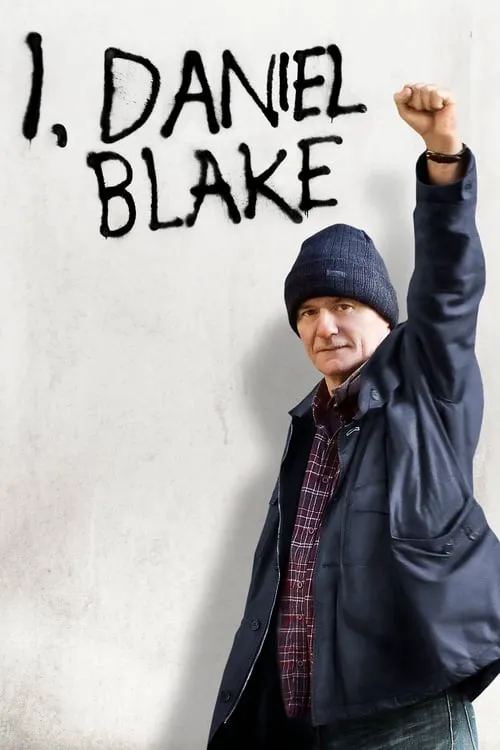I, Daniel Blake

Plot
In the bleak and unforgiving world of modern-day Britain, director Ken Loach crafts a poignant and powerful tale with "I, Daniel Blake," a film that lays bare the harsh realities of a society that seems to have lost its humanity. At its core, the movie follows the story of Daniel Blake, a middle-aged carpenter who finds himself in a desperate fight for survival after a heart attack leaves him disabled and unable to work. The film opens with Daniel, a straightforward and no-nonsense man, returning to his workshop after a successful stint of self-employed carpentry work. However, his plans for a peaceful evening are soon shattered as he collapses onto his workbench, overwhelmed by a sudden heart attack. This is the first of many setbacks for Daniel, as he soon discovers that the British healthcare system is anything but supportive. After multiple hospitalizations and a diagnosis of a serious heart condition, Daniel is deemed "fit to work" by the government's rigid bureaucracy, much to his dismay. As Daniel navigates the complexities of the welfare system, he is forced to attend a series of interviews to assess his fitness for work. These encounters are a testament to the dehumanizing nature of modern-day Britain, where every conversation is reduced to a series of bureaucratic hoops to jump through. Despite his protests and pleas for help, Daniel finds himself at a loss, struggling to make sense of the system that has left him broke and on the verge of homelessness. It is in this bleak landscape that Daniel meets Katie, a single mother who has just been forced to return to London after her estranged partner abandoned her and their two young children in Newcastle. Katie is a kind and gentle soul, forced to rely on the very system that has failed Daniel, to survive. Despite her best efforts to keep her children safe and fed, Katie finds herself at the mercy of an uncaring and underfunded system. As the two outcasts navigate their new lives, they form an unlikely bond, united by their shared experiences of poverty and marginalization. Daniel, with his no-nonsense attitude, becomes a voice of reason in Katie's chaotic world, offering words of wisdom and support to a woman who has all but given up. Katie, on the other hand, brings a sense of hope and positivity to Daniel's life, reminding him that there is still kindness and humanity to be found in a world that seems to have lost its way. Through their friendship, Loach exposes the systemic failures that lead to poverty and human suffering on a grand scale. The welfare system, designed to support the most vulnerable members of society, is revealed to be a cold and unforgiving mechanism that punishes those in need rather than providing them with the support they require. The government's policies, driven by an ideology that emphasizes individual responsibility and self-reliance above all else, are shown to be the antithesis of the very compassion and solidarity that Daniel and Katie embody. Throughout the film, Loach also highlights the human cost of poverty and marginalization, as Daniel and Katie struggle to keep their heads above water. The film is a testament to the resilience of the human spirit, as these two individuals refuse to give up in the face of overwhelming adversity. Despite the many setbacks and disappointments they face, Daniel and Katie hold onto a sense of hope and solidarity, a testament to the enduring power of human connection in the darkest of times. The film features powerful performances from its two leads, Dave Johns and Hayley Squires, who breathe life and energy into their characters. The chemistry between them is undeniable, as they convey the deep bond that develops between Daniel and Katie. Loach's direction is equally impressive, capturing the bleakness and desolation of the world around Daniel and Katie, while also conveying the beauty and resilience that can be found in even the most difficult of circumstances. In the end, "I, Daniel Blake" is a powerful indictment of a society that has lost its way. It is a call to action, urging us to reflect on the values that we hold dear and to question the systems that we put in place to support our most vulnerable citizens. Through the story of Daniel and Katie, Ken Loach reminds us that even in the darkest of times, there is always hope to be found, and that the power of human connection can be a transformative force in the world around us.
Reviews
Recommendations




